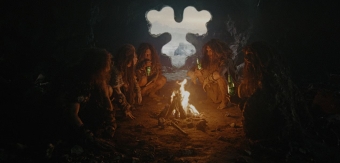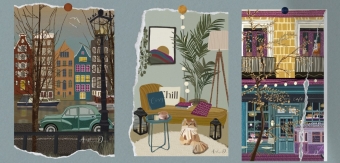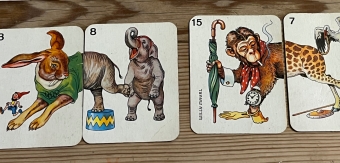Stormy Studio is an award-winning business-focused animation studio in the UK that produces high-quality 2D and 3D business explainers and marketing animation for global brands and businesses.
To learn more, we spoke to company founder and creative director, Jon Draper.
How was your company born and where are you based?
I founded Stormy Studio back in 2013 after working for various production companies in and around London, gaining skills and moving up the ranks to lead animator and into more creative director roles. I then moved to the coast in the Southwest of England and started the business in a spare room at home, just outside of Plymouth in Devon.
The business quickly grew and moved into its first studio space. Over the years we’ve moved studios a few times, tried our hand at also running a film studio space. Covid increased our remote working approach and we’re now a fully remote studio working with local and international creatives to bring our clients projects to life.
What was the biggest challenge to the growth of your company?
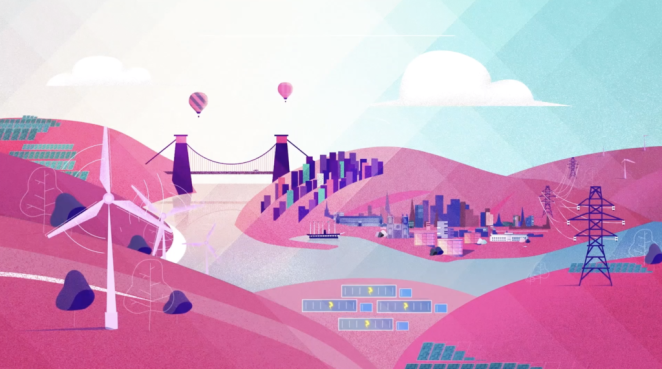
I think the largest challenge has been finding the right balance of consistent client budgets, margins and managing cash flow. When done well it allows us to work with the most talented animators and designers.
Sometimes, certainly in the early days, trying to ensure there is a profit for the business whilst still producing quality work was a balance which often meant working a lot of hours to ensure the work was up to scratch and well received by clients. This certainly helped toward building the studios reputation.
Creating unique and high-quality work, (even if it’s a rather dry corporate subject) , that really delivers on the clients goals, that we can later showcase and in turn win more creative business is still a consistent driver for us, as well as the satisfaction of crafting a beautiful bit of motion or design.
Over time we’ve got better at costing projects, knowing when to say no or acknowledging when there is scope creep and this has allowed us to try out new ideas, produce better work and remain viable as a business.
Which was the first huge success that you can remember?
In the first or second year of founding the studio. I’d been attempting to network locally, going to somewhat depressing business breakfasts in the city at 6.30am to try and build contacts. I was not a fan of public speaking, chatting to strangers, or the early mornings. However, the fried breakfast was always welcome though.
Fortunately, after weeks of chatting to photocopy salesman and locksmiths and drinking a lot of coffee. This effort lead to a connection with a new web design company in the city, who in turn put us in contact with a client of theirs who needed a video and various animations. This landed us our first £15K+ project, plus it was incredibly creative, as we have free reign on the story and utilised a mix of filming mixed with 2D animation.
We put it all into the production, probably making little to no profit but the result was a great piece of content that still brings in new and interesting production enquiries to this day. We’ve since been able to reciprocate and pass business back to the web designer company, plus we’ve now had over £80k of work from the client they introduced us to years ago.
What’s the biggest opportunity for you and your company in the next year?
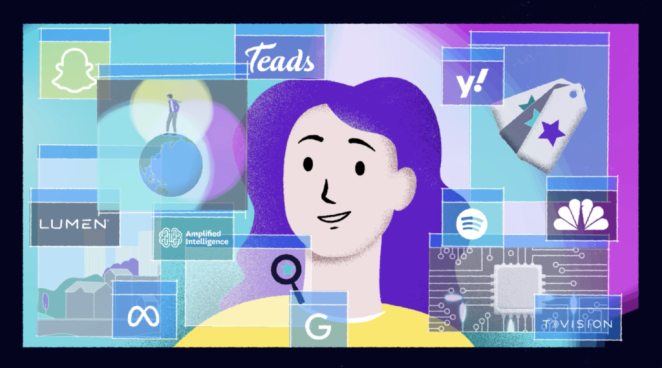
I’m really excited by the work we’ve been doing on our studio website to improve our position for animation in a few sectors, namely Pharmaceutical animation and renewable energy.
Both areas we’ve worked with in the past often via agencies and despite the subjects there has been scope for some rewarding creative projects. So, I’m keen to see how we can expand our producer and animation teams when we’re able to secure more large-scale projects.
Other than that, we’ve also got a really exciting hand-drawn animation that we can hopefully share with the world soon which I hope will be well received and highlight how worthwhile investing in time-consuming hand drawn animation can be for businesses to create really unique content.
Can you explain your team’s creative process? What makes it unique?
It’s hard to pin down exactly what makes us unique as I think most studios would or should go through the same stand process, through script writing, storyboarding to design and final animation and sound design.
Though, I suppose we like to think we’re different as we have a very real focus on business animation above other areas of the industry. So, we’re really used to working within the restraints of the corporate world, we try to balance a professional image with creative style in everything we produce and I think this comes across.
We’re certainly not the cheapest but think for the quality of content produced we do offer very good value and a high quality of service. Just looking at our portfolio there is diverse range of art styles from hand-drawn, digital 2D, techy VFX and 3D animation. Though the connecting factor is a good level of polish and business messaging.
How does your team remain inspired and motivated?
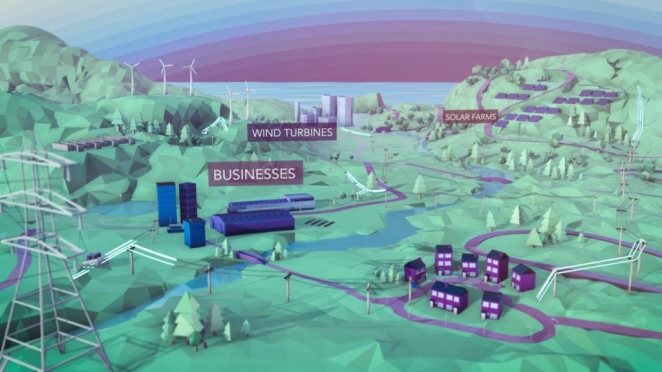
We are all creatives who absolutely love creating a moment of compelling messaging through good design or perfect motion. That’s certainly what keeps everyone excited, especially when a project is just starting and in those early creative ideation phases.
From a business side I love to work with clients that interest me, brands I like and to secure budgets for projects that allow us to really put extra effort in. We’re currently producing a video for an amazing UK company around the subject of Circular Design, it’s both a really great subject to be putting out into the world, not salesy at all and one we’re all proud to be working on plus the style is great too.
Other than that, coffee… a lot of coffee.
How has COVID-19 affected your company?
When Covid hit we went from having 8 creatives working in the studio and remote freelancers, to just myself working from the studio, with everyone else working from home or a coffee shop.
We’d only recently expanded the studio and setup a film studio space which was pretty-terrible timing but still an interesting project. After a few months I took the decision to downsize and moved the studio to just have the filming space as it was rather nice.
We initially lost a few projects that were just starting up, as they were for animation content production needed for events that were then cancelled due to the Covid-19 restrictions. However, these were soon replaced by animations explaining Covid-19 and other related subjects and it actually balanced out fairly well in the end.
I ended up using the film studio to film an in-depth course on how to start and run a viable animation studio, which turned into a lot of work but was successfully finished and made the film studio space worth while. This lead to a YouTube channel, blog and other things on the subject.
The remote working was very effective though and eventually at the end of 2022, I took the decision to close the office and move to a fully remote working business model. So far it’s been really very good, with everyone communicating and collaborating effectively.
I do miss some of the in-person benefits of bouncing ideas off each other, learning new skills from one another and the general fun of sarcastic insults being thrown around the office.
Which agencies do you gain inspiration from? Do you have any heroes in the industry?
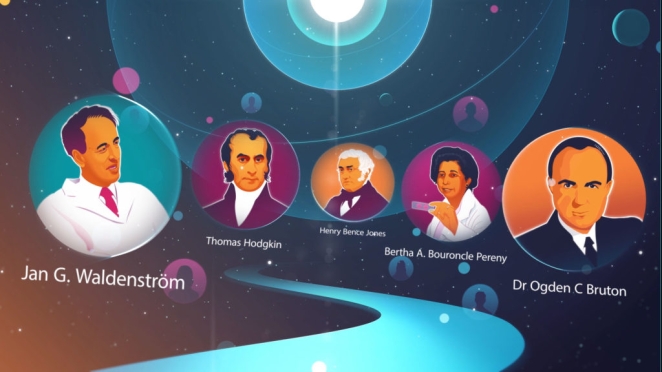
I love looking at what other studios and creatives are up to. The likes of Odd Fellows, Giant Ant and Buck are all an inspiration both in how they consistently produce incredible work, have built and managed huge teams of creatives and work for some really top tier brand clients.
What is one tip that you would give to other agencies looking to grow?
I’m a big fan of content creation to help build up our studio business over expensive paid advertising. It takes time and can be a slow burn to get results but it will work. Though we do still do paid advertising from time to time. I’d recommend investing time in creating blog articles, webpages, useful production related downloads and being discoverable online.
Collect emails for future marketing to interested parties both for potential future staff and for clients. Plus, the best way to keep a business viable is to remarket with past clients who already know the quality of work you can deliver, or get in touch and ask for recommendations.
Lots of pieces of a pie but the more you can do the higher the chances of getting that perfect contact, new enquiry allowing you to secure more work and grow the team. Or not… sometimes I love the idea of keeping our studio small and a little more stress free.
How do you go about finding new clients/business? (Pitching, work with retainers, etc.)

We typically get new business through enquires to our website. As mentioned above, we’ve done a good bit of work on the website, creating content, improving the SEO so we rank well for some specific search terms on Google which brings in some useful traffic.
That said, we do pitch for a few big projects each year, putting together a large proposal and aim for some big projects from government portals or things like that. Whilst we always score really well for these projects it’s a lot of work and hard to be compete when there are 50+ other studios pitching so we don’t do it too often.
Otherwise, we do well from repeat business and are key suppliers to a handful of large organisations in the UK and internationally. All of which originally got in touch because they’ve been to our studio website.
What’s your one big hope for the future of the industry?
I hope that the industry continues to thrive and grow and that there’s a shift away from the typical corporate vector artwork style that’s been so popular for so long in the business explainer animation world.
The arrival of more AI tools is of course worrying some around jobs and what it means for those starting in the industry. I really hope it means we can produce bigger and more creatively exciting work, and that it allows more creative freedom and better work to be produced by passionate artists. We’ll see…
Do you have any websites, books or resources that you would recommend?
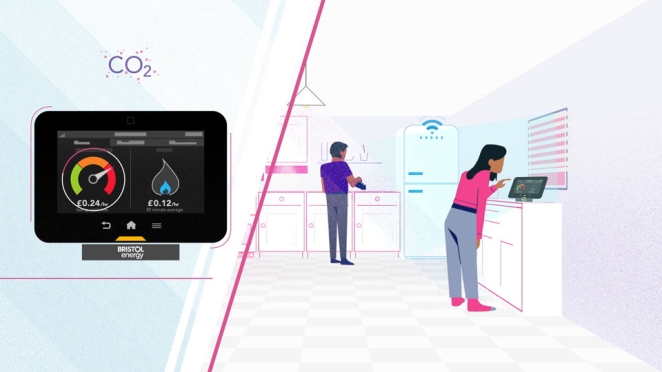
Well, I’d of course recommend checking out the online course I creative on how to start and run a viable animation studio at startastudio.com.
But outside of that self-serving recommendation. I recommend any podcast on business marketing as it can teach a lot about reaching clients. Plus, the book The Lean Startup by Eric Ryes is a great reference when starting out or thinking about launching some new business idea, regardless of whether it’s animation related or something else entirely.
There’s also the animation career sub on Reddit, which is great for chatting with aspiring animators, learning about university courses and those trying to further animation careers.



